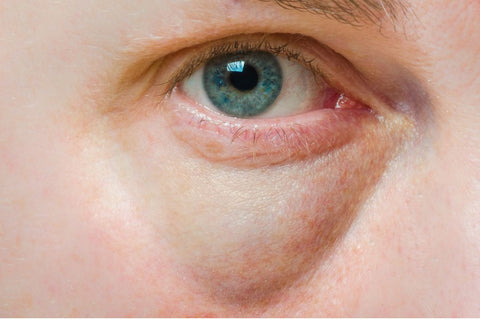
Beauty Sleep: How Poor Sleep Quality Affects Your Skin and What to Do About It
|
Time to read 3 min


|
Time to read 3 min
Do you ever wake up feeling tired, groggy, and not quite yourself?
Chances are, you're not alone. Poor sleep quality is a common problem that affects many of us, and it can have serious consequences for our overall health and well-being.
But did you know that it can also affect the health and appearance of our skin?
In this blog post, we'll explore the ways in which poor sleep quality can impact our skin, and provide some practical tips for improving both our sleep and our skincare routine.
When we don't get enough sleep, or when our sleep quality is poor, our body experiences a range of negative effects.
These effects can be both physical and psychological, and they can have a significant impact on our skin health.
One of the most common effects of poor sleep quality is increased inflammation and redness in the skin.
This can be caused by a number of factors, including the release of stress hormones and the disruption of the body's natural healing processes. Inflammation and redness can make the skin appear puffy, irritated, and dull.

Another effect of poor sleep quality is an increase in the appearance of fine lines and wrinkles. This is because our body's natural collagen production is reduced when we don't get enough sleep, and collagen is a key component of healthy, youthful-looking skin. Over time, this can lead to the development of more pronounced wrinkles and other signs of aging.

Another common effect of poor sleep quality is the development of dark circles and puffiness around the eyes. This is because when we don't get enough sleep, the blood vessels around our eyes can become more dilated and visible, leading to a dark and puffy appearance.
Now that we've explored some of the ways in which poor sleep quality can affect our skin, let's turn our attention to some practical tips for improving our sleep quality:
One of the best things you can do to improve your sleep quality is to establish a consistent sleep schedule. This means going to bed and waking up at the same time every day, even on weekends. This helps to regulate your body's internal clock, making it easier to fall asleep and stay asleep.
Another important factor in improving sleep quality is creating a sleep-friendly environment. This means keeping your bedroom cool, dark, and quiet, and removing any distractions that might interfere with your sleep. You might also consider investing in a comfortable mattress and pillows to ensure that you're as comfortable as possible.
Before Bed Stimulants like caffeine, nicotine, and alcohol can all interfere with our sleep quality, so it's best to avoid them in the hours leading up to bedtime. Instead, try drinking a cup of chamomile tea or doing some gentle stretching exercises to help you wind down.
In addition to improving our sleep quality, we can also take steps to improve our skincare routine before bed. Here are some tips for making the most of your nighttime skincare routine:
When it comes to skincare, less is often more. By putting less, it puts less stress on the skin.
To avoid irritating your skin, try to use products that are gentle and non-irritating. Look for products that are free of harsh chemicals, fragrances, and other potentially irritating ingredients.
Before applying any skincare products, it's important to cleanse your skin thoroughly to remove any makeup, dirt, or other impurities that may have accumulated during the day. Use a gentle, pH-balanced cleanser that is appropriate for your skin type, and be sure to remove all traces of makeup before going to bed.
To counteract the negative effects of poor sleep quality on the skin, it's a good idea to use products that promote hydration and collagen production. Look for products that contain hyaluronic acid, a powerful humectant that can help to attract and retain moisture in the skin.
Facial massage or gua sha can be a great way to improve the health and appearance of your skin before bed. These techniques can help to increase circulation, reduce puffiness, and promote relaxation, which can all be beneficial for your skin health.
By incorporating these tips into your nighttime routine, you can help to improve the health and appearance of your skin, even when your sleep quality is less than ideal. Remember, good skincare starts with good sleep, so be sure to make both a priority in your daily routine.